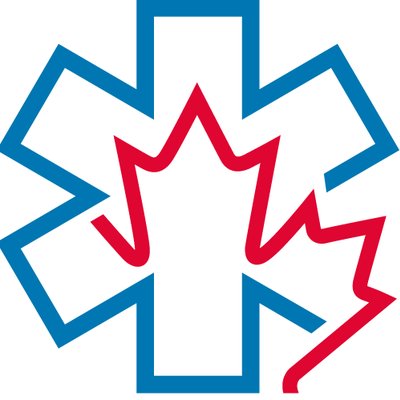 An emergency medicine journal has retracted a letter to the editor, saying it didn’t include the author’s relevant commercial interest—which the author says he tried to disclose when he submitted the paper.
An emergency medicine journal has retracted a letter to the editor, saying it didn’t include the author’s relevant commercial interest—which the author says he tried to disclose when he submitted the paper.
The author, Guy Weinberg, told Retraction Watch he had noted his conflict of interest when he submitted the letter last March, but said he did not use the journal’s disclosure form. He added that his primary concern is that the editors didn’t reach out to him to discuss the issue prior to retracting the letter.
Here’s the retraction notice for “Assessing Efficacy of Lipid in Unstable, non-LAST Overdose Patients,” published on Sept. 18 in the Canadian Journal of Emergency Medicine:
The author’s submission of their conflict of interest did not sufficiently meet the standards that CJEM requires, and there is potential commercial interest in regards to the subject of the author’s letter.
Weinberg, a professor of anesthesiology at the University of Illinois College of Medicine in Chicago, told us that, shortly after submitting the letter in March, he emailed the Canadian Journal of Emergency Medicine, explaining he could not find the journal’s conflict of interest form. In his March email, he wrote:
I inserted text regarding COI in the appropriate box, but couldn’t see that you had a CJEM-specific conflict form to fill out. If so, please send me the link; if not, the text I supplied should suffice.
The journal’s managing editor responded to Weinberg the same day, and said that what he submitted was fine for now.
The journal published his letter to the editor in July, which flagged potential flaws in a 2017 paper that reported little benefit from an off-label therapy to treat drug overdoses. Weinberg said he thought it was a little odd that the letter didn’t include his conflict—namely, that he is the founder of a company that promotes the use of the therapy to treat drug overdoses, primarily anesthetics.
In September, the journal’s editor-in-chief, James Ducharme, emailed Weinberg that his letter had been retracted because it was missing the very conflict of interest Weinberg said he tried to disclose when he submitted the letter in March.
Ducharme told Weinberg that one of the authors of the original paper and an editor at the journal noticed that the letter didn’t mention Weinberg’s company, ResQPharma. Ducharme told Weinberg he retracted the letter because it wasn’t possible to make changes once it was published, and readers might miss the separate erratum notice.
Weinberg explained to Ducharme that he was “disappointed” that the journal had retracted the letter “without contacting me first.” He also said he thought he had already resolved the disclosure issue with the journal six months prior.
We asked Ducharme about the decision to retract the letter, but he said he is no longer involved with the journal. We contacted Lauren Marra, a senior production editor at Cambridge University Press, to confirm Ducharme’s description, given that other major publishers are able to correct content after publication. Marra noted:
We do not alter published material except in the case of misspelled, indexable citation material (i.e., a misspelling in the title of an article or in an author’s name, both of which would cause indexing/citation issues). If we do make an alteration of this sort, we still issue an erratum detailing the change that was made, and add a footnote to the original article explaining that a change has been made. This is a very rare occurrence.
Weinberg told us that he always tries to provide an accurate statement of his conflicts, and journals have published variations of his disclosure.
Failure to disclose a conflict of interest is not typically enough to trigger a retraction. Most of the retractions we’ve seen that cite conflicts of interest include some other problem with the paper, such as errors in the analysis.
Weinberg has resubmitted his letter. The journal’s current editor-in-chief, Ian Stiell, told us the journal now has a “proper” conflict of interest form from Weinberg, and “will be re-publishing his letter [and the original author’s response] shortly.”
Weinberg told us that the process has been inefficient, and because the retraction notice is vague, he worries it may “cast aspersions on my integrity as a scientist.”
Hat tip: Rolf Degen
Like Retraction Watch? Consider making a tax-deductible contribution to support our growth. You can also follow us on Twitter, like us on Facebook, add us to your RSS reader, sign up on our homepage for an email every time there’s a new post, or subscribe to our daily digest. Click here to review our Comments Policy. For a sneak peek at what we’re working on, click here. If you have comments or feedback, you can reach us at [email protected].